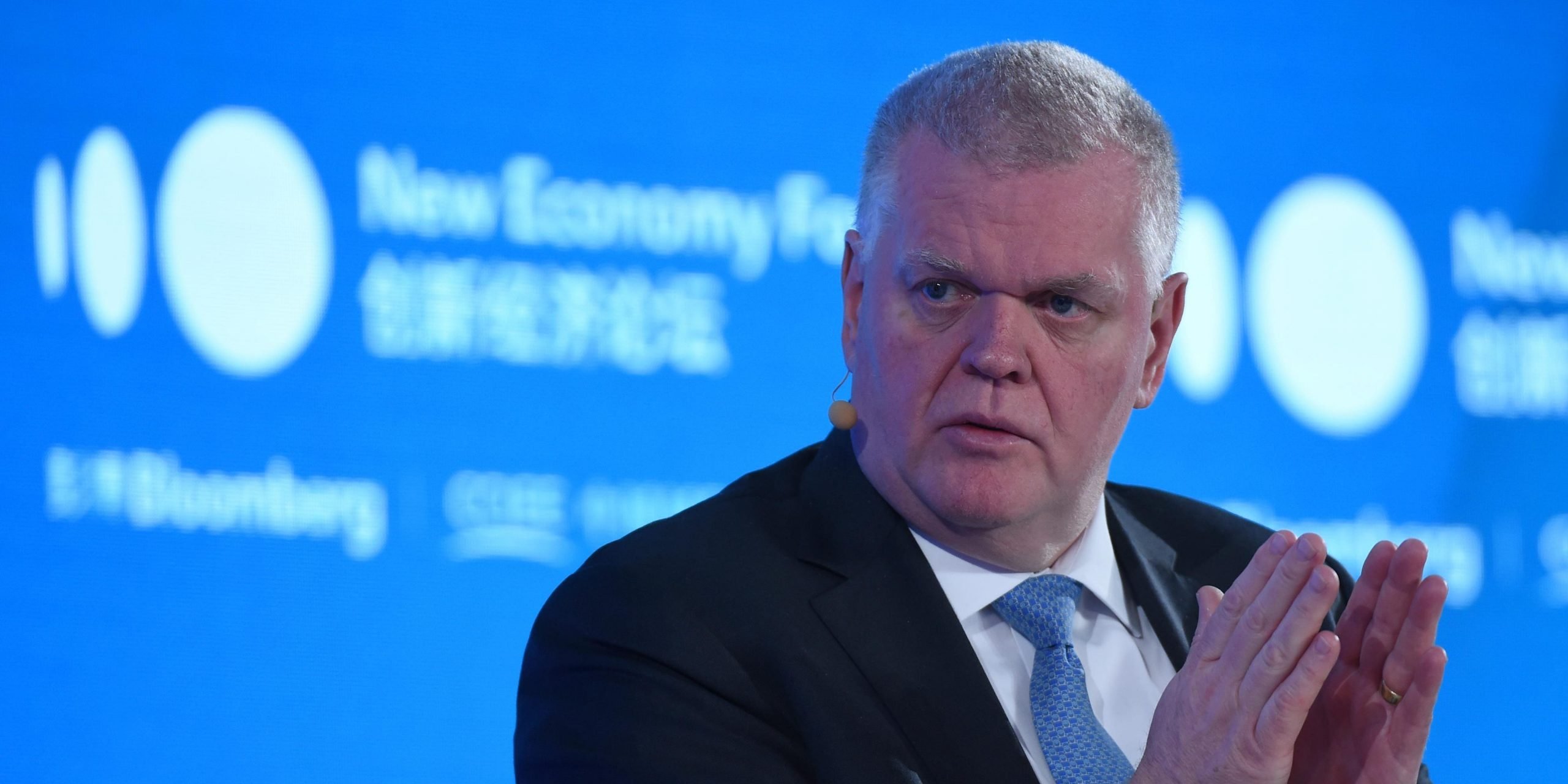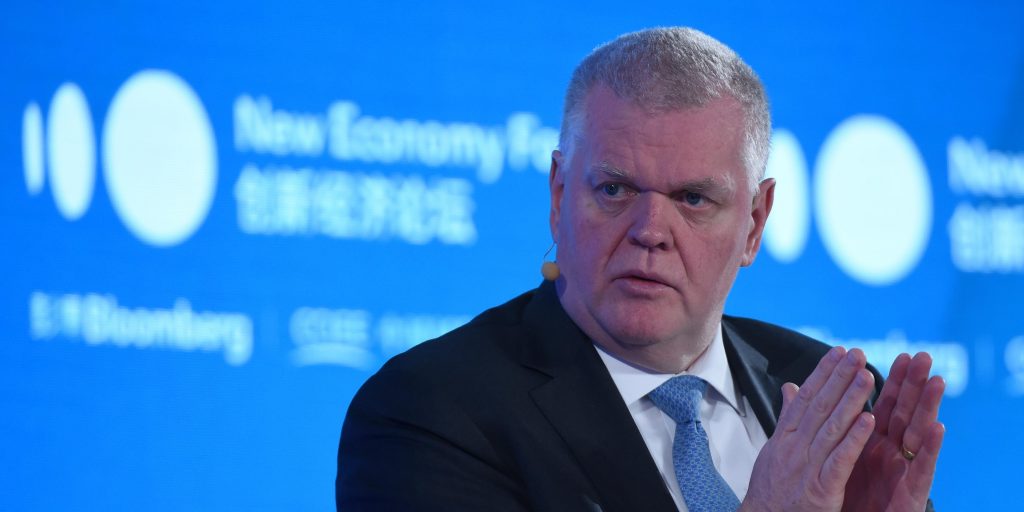
Hou Yu/China News Service/VCG via Getty Images
- HSBC chief Noel Quinn said that the bank has no plans of initiating a crypto desk nor offering these to clients, Reuters reported.
- He cited the volatility of cryptocurrencies as the reason, as well as a lack of transparency.
- The statement is in contrast to other major banks such as UBS, Goldman Sachs, and Morgan Stanley, which have all recently added crypto services.
- Sign up here for our daily newsletter, 10 Things Before the Opening Bell.
HSBC chief Noel Quinn on Monday said that his bank has no plans of initiating a cryptocurrency desk nor offering these to clients, Reuters first reported.
The CEO of Europe's largest bank cited the volatility of cryptocurrencies as the reason, as well as a lack of transparency in the digital assets.
"Given the volatility, we are not into bitcoin as an asset class, if our clients want to be there then of course they are, but we are not promoting it as an asset class within our wealth management business," Quinn told Reuters.
The statement of Quinn comes after China reiterated its call to restrict bitcoin mining and trading activities Friday, sending the world's largest cryptocurrency spiraling further by 11% that day, after an already bloody seven-day sell-off that caused it to lose around 50% of its value from this year's peak.
Bitcoin was trading 6.97% higher to $37,745 as of 8:25 a.m. ET Monday.
The move also comes in contrast with other major banks such as UBS, which is reportedly in talks to offer cryptocurrency investments to its wealthy clients. Goldman Sachs meanwhile recently announced it will trade non-deliverable forwards, a derivative product tied to bitcoin's price, and Morgan Stanley, which in March was the first major American bank to offer its wealth management clients access to bitcoin funds.
"I view bitcoin as more of an asset class than a payments vehicle, with very difficult questions about how to value it on the balance sheet of clients because it is so volatile," he told Reuters.
The CEO did say he was more bullish on central bank digital currencies.
"CBDCs can facilitate international transactions in e-wallets more simply, they take out friction costs and they are likely to operate in a transparent manner and have strong attributes of stored value," he told Reuters.
Federal Reserve Chair Jerome Powell on May 20 revealed that the central bank has taken further steps in its exploration of a digital currency and will be releasing a discussion paper this summer outlining its current thinking on digital payments.
A number of central banks worldwide have been exploring CBDCs, spurred by strong momentum in the cryptocurrency space this year.
China has been leading the race since developing its digital currency electronic payment CBDC in 2014 and testing a pilot program in 2020.
In April, Norway announced it would start testing various solutions for a CBDC, while the UK said it is coordinating exploratory work on a potential CBDC, dubbed "Britcoin."

